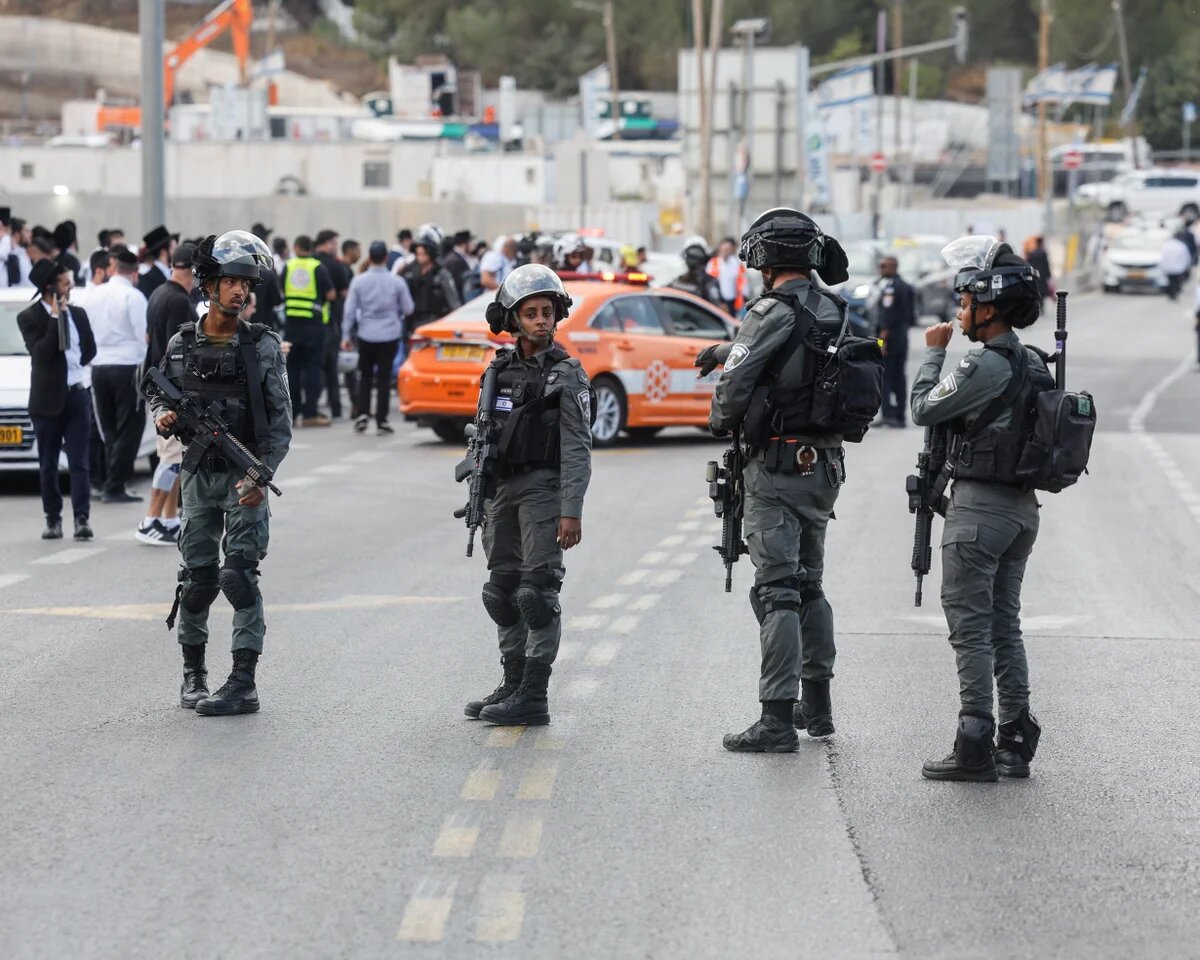Al-Quds shooting leaves six dead, exposes Israel’s security vulnerabilities

TEHRAN – At least six Israeli settlers were killed and 17 others injured on Monday after two Palestinian gunmen opened fire on a bus at the Ramot settlement junction, north of occupied Jerusalem (al-Quds).
Witnesses said one of the attackers boarded the vehicle disguised as a ticket inspector before opening fire during the morning rush hour.
Both gunmen, reportedly from a village near Ramallah, were killed at the scene, while Israeli forces sealed off roads and checkpoints between the West Bank and Jerusalem.
This marks the most significant operation in the city since 2023, underscoring the simmering rage over Israel's relentless land seizures, killings, and apartheid policies.
Hamas hailed the operation as “a natural response to the crimes of the occupation and the genocide it wages against our people,” warning that Israel's assaults on Gaza and threats to Al-Aqsa Mosque “will not pass without punishment.” The Al-Quds Brigades of Palestinian Islamic Jihad echoed this, calling it “a natural and legitimate response to the ongoing crimes of the Zionist enemy” in Palestinian lands.
Ramot, an expansive illegal settlement under international law, sprawls across Palestinian land just beyond the 1967 Green Line, fragmenting communities and devouring resources essential for a sovereign Palestinian state.
Such encroachments have intensified under Prime Minister Benjamin Netanyahu's far-right coalition, formed in 2022 with Jewish supremacist figures such as Finance Minister Bezalel Smotrich and National Security Minister Itamar Ben-Gvir.
Smotrich, who oversees West Bank affairs, recently unveiled plans to annex 82% of the territory, framing it as a counter to global recognition of Palestinian statehood. Ben-Gvir, notorious for arming settlers and inciting violence, has pushed for more weapons among civilians, exacerbating attacks on Palestinians that have surged since October 7, 2023.
Following the Ramot shooting, they moved rapidly to exploit the attack. Smotrich called for the Palestinian Authority to be “wiped off the map” and demanded that the attackers’ home villages be reduced “to ruins,” echoing the devastation Israel has inflicted on Gaza. Ben-Gvir renewed calls for settlers to arm themselves, raising fears of vigilante violence against Palestinians in the West Bank.
For Palestinians, the aftermath is grimly familiar. Military raids, mass arrests, checkpoints sealed shut, and punitive home demolitions typically follow such attacks. According to Al Jazeera, residents in Bethlehem’s Aida refugee camp and other parts of the West Bank reported bracing for raids and reprisals, describing an atmosphere of fear and uncertainty.
Human rights groups have long denounced these tactics as collective punishment — measures that target entire communities rather than individuals.
The attack in Ramot is not an isolated event but part of a long trajectory. Since October 2023, Israeli forces have intensified raids across the West Bank, while settler violence against Palestinian farmers and villagers has surged under the protection of the army. Analysts note that such attacks are often a symptom of suffocating occupation: collapsing economies, checkpoints at every turn, and the daily grind of military control.
Netanyahu, speaking at the site of the shooting, vowed “dire consequences” and declared that Israel is fighting “a war on multiple fronts.” Yet critics argue his coalition, propped up by the far right, is less interested in addressing security than in advancing annexationist ambitions.
Palestinians brace for what comes next — mourning their dead in Gaza and the West Bank amid fresh waves of grief, and anticipating the sweeping reprisals that observers warn routinely follow when armed attacks pierce the heart of Israel’s military occupation.
Leave a Comment